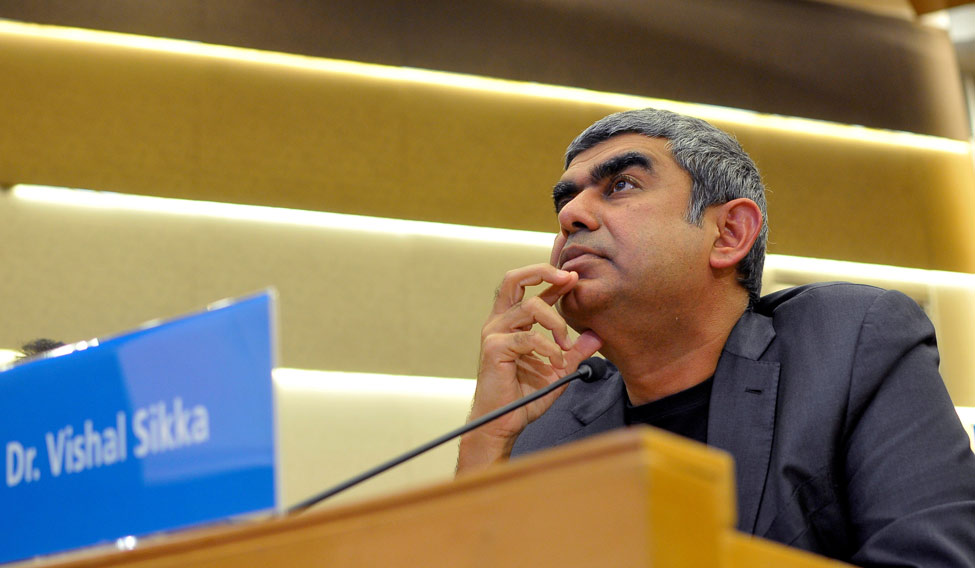Vishal Sikka arrived in a driverless vehicle at the venue of the news conference that was called to announce the quarterly results of Infosys. It was India’s first driverless car—manufactured by Infosys. Sikka was excited about ‘Infy’ having taken advantage of the best possibilities that artificial intelligence (AI) offer. One month later, the same Sikka is leaving the driver’s seat of the company, leaving halfway the dream of taking the IT sector to new heights.
Vishal Sikka took over the reins of Infosys three years ago in style that was novel and different. The ‘Cool Boss’ who wore round-necked T-shirt and a blazer over it soon endeared himself to his colleagues. He walked on the lawns of the company barefoot; he was willing for selfie with colleagues; and he allowed the employees to wear informal dress to work—in short, a total change in workplace ambiance. Sikka went further and let the employees use social media, including Facebook, inside office. This changed the very character of the Infy campus. The IT sector began talking about the ‘Sikka style.’ Sikka favoured involving all employees in coming up with new ideas, instead of a few taking decisions. An ideation group named ‘Murmuration’ was formed. He let his colleagues air their opinions, suggestions and criticisms. Infy was active in social media such as Twitter and blogs.
Once his efforts to increase the efficacy of the employees became successful, Sikka announced his next goal—imbibe changes; be a step ahead of the changes; and Infosys should diversify into the fields of AI automation and robotics. The first project to be implemented in this regard was the ‘Zero Distance Programme’ that aimed at providing service to the customers in the shortest time possible by using all the possibilities offered by the latest technology. Employees were given special training for this. Online courses were conducted with a view to using AI and automation technologies in the best manner possible. Infosys succeeded in providing techno-services within minutes to its customers, including big-time companies. It introduced artificial-intelligence platforms such as MANA and NIA in order to predict the revenues of businesses, understand customer behaviour, and ensure transparency in contracts.
When Infosys decided to extend its operations to Indiana in western Africa, the IT media described Sikka as ‘the Indiana Jones of Indian IT.”
During Sikka’s reign, Infosys achieved 17 per cent growth in total turnover, and 13 per cent in working profits.
Close on the heels of submitting his letter of resignation on Friday, Sikka wrote to his colleagues: “We have laid the foundation of the company’s growth for the next 30 years. The road to changes is rugged. Freedom is the key to our progress.”
And, Sikka had hinted loss of freedom as the reason for his resignation.





